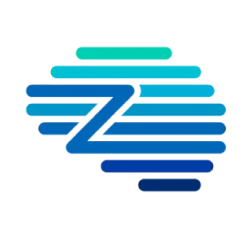Amid a growing global focus on sustainability, leading corporations are redefining the strategic framework of Contract Lifecycle Management (CLM) by seamlessly integrating Environmental, Social, and Governance (ESG) criteria. A stellar example of this trend is evident through Gartner’s analysis, which reveals that a robust sustainability strategy can amplify contract compliance by a significant margin. Initiatives like Microsoft’s inclusion of carbon reduction clauses in procurement contracts exemplify how businesses are transitioning from passive compliance to proactive leadership in sustainability. This transformative approach not only adheres to international frameworks such as the Paris Agreement but also pioneers a competitive advantage, positioning corporations as leaders in sustainable operation and ethical business practices. In this blog, we’ll discover how sustainable contract management is revolutionizing CLM, providing a strategic edge in today’s ESG-focused business landscape.
ESG in CLM – A Strategic Overview
Incorporating Environmental, Social, and Governance (ESG) criteria into Contract Lifecycle Management (CLM) represents a significant strategic advance for modern enterprises. As noted by Gartner, a clear sustainability strategy can greatly improve contract compliance. This integration begins at the contract drafting phase, where sustainability objectives are defined and clearly articulated to ensure all contractual relationships uphold these standards.
Read more: The Paradigm Shift in Contract Lifecycle Management: Why 2024 Demands a Rethink of Your CLM Strategy
Sustainable Contract Management in Practice
Case Example
A notable example is Microsoft, which has incorporated carbon reduction clauses into its procurement contracts, actively pushing for a greener supply chain.
By embedding specific ESG clauses from the early stages, businesses are not merely reacting to sustainability trends but are proactively making them a core aspect of their operational strategy. This not only aligns with global sustainability commitments like the Paris Agreement but also strategically positions companies to leverage sustainability for long-term competitive advantage.
Sustainable Procurement – The Backbone of Green CLM
Sustainable Procurement is crucial, acting as the operational backbone of Green CLM. It extends beyond choosing eco-friendly suppliers or products; it encompasses a holistic approach involving rigorous supplier assessments and continuous performance monitoring against ESG standards.
Key Components Include:
- Supplier sustainability assessments.
- Integration of ESG performance metrics in supplier scoring.
- Regular audits and compliance checks.
For instance, IKEA’s commitment to only using renewable or recycled materials by 2030 dramatically shapes their procurement policies and contracts, fundamentally influencing their entire supply chain to adhere to stringent environmental standards. This proactive approach not only mitigates environmental impact but significantly boosts corporate reputation and stakeholder confidence.
Telekom Malaysia’s Approach to Sustainable Contract Management
ESG Compliance in Contracts – Ensuring Accountability and Performance
The role of ESG compliance in contracts is pivotal in solidifying accountability and fostering measurable performance. By intricately weaving ESG metrics into contracts, companies can establish clear benchmarks that must be met, thereby not just expecting but ensuring compliance.
Effective Strategies Include:
- Defining clear ESG metrics and targets.
- Implementing milestone-based payments linked to ESG compliance.
- Utilizing third-party audits to verify compliance.
An example to highlight here is Unilever’s Sustainable Living Plan, which incorporates supplier adherence to sustainability standards into their contracts, directly impacting their global procurement strategy.
Ethical Contract Management – Fostering Transparency and Integrity
Ethical Contract Management ensures a dedication to transparency and integrity throughout the contract lifecycle. Incorporating ethical standards into every phase, from negotiation to fulfillment, ensures that all involved parties uphold the highest standards of integrity and ethics.
Practical Approaches Include:
- Comprehensive anti-corruption clauses.
- Strict adherence to labor laws and human rights in all agreements.
- Transparent disclosure and conflict resolution mechanisms in contracts.
This practice not only mitigates risk but builds a foundation of trust and reliability among stakeholders, which is pivotal for long-term business relationships.
Download the Whitepaper: 5 Steps to Realizing Value from Contract Lifecycle Management
Responsible CLM – Achieving Sustainable Business Objectives
Responsible CLM entails the ongoing oversight and alignment of contract executions with ESG objectives, ensuring that sustainability commitments are actively managed and not merely aspirational. Continuous monitoring and the readiness to recalibrate contracts in response to performance against predefined ESG benchmarks are key elements.
Monitoring Tools Include:
- Regular sustainability reports.
- Real-time monitoring dashboards.
- ESG performance reviews linked to contract renewals.
By taking these steps, organizations like Patagonia have successfully created not just legal agreements but partnerships that are dynamically aligned with their pervasive sustainability ethos.
Contract Management Innovation – Leveraging Technology for Sustainability
The use of cutting-edge technology in contract management allows for enhanced efficiency and a more effective integration of ESG principles. Artificial Intelligence (AI) and Blockchain offer notable advancements:
- AI: Automates the tracking and reporting on ESG metrics, enabling predictive analytics to forecast potential compliance issues before they arise.
- Blockchain: Provides an immutable ledger, crucial for maintaining transparent records of ESG claims and substantiating those claims to regulatory bodies or third parties.
These technologies not only streamline sustainability practices but also fortify the credibility and tracking of corporate ESG initiatives.
Download the Whitepaper: Astute Contract Risk Management: Best Practices to Mitigate Risks
ESG Principles in CLM – Guiding Future Practices
Adhering to ESG principles within CLM prepares businesses for a future where sustainability is standard. Integrating comprehensive risk management, ethical decision-making, and proactive stakeholder engagement ensures that organizations are prepared to meet not only today’s sustainability demands but tomorrow’s as well.
Long-term Strategies for Success:
- Embedding resilience and adaptation to environmental changes in contractual agreements.
- Developing contracts that incentivize innovation in sustainability.
- Ensuring that all contract terms are aligned with international sustainability standards and ethical benchmarks.
By prioritizing these practices, companies position themselves at the forefront of sustainable development, driving industry standards and creating new benchmarks for success. This strategic foresight often leads to market differentiation and can set a company well ahead of its competitors in terms of both reputation and financial performance.
Conclusion
The strategic incorporation of Environmental, Social, and Governance (ESG) criteria into Contract Lifecycle Management (CLM) is more than a compliance necessity; it is a transformation that positions companies at the vanguard of market leadership and sustainable innovation. By starting at the drafting phase and embedding sustainable practices and ethical benchmarks into every facet of their contractual agreements, businesses are not only meeting the pressing demands of today’s environmental challenges but are also paving the way for a resilient, sustainable future.
With each contract, companies like Microsoft and IKEA are exemplifying how integration of clear ESG metrics and rigorous supplier assessments can significantly elevate operational strategies and align with global sustainability commitments such as the Paris Agreement. Such proactive measures ensure that sustainability is interwoven with daily business operations, propelling long-term competitive advantage.
Important technological advancements, including AI and blockchain, are pivotal in this evolution, offering the tools necessary to effectively track, report, and enhance ESG compliance across contract lifecycles. This not only streamlines the reporting processes but also solidifies the credibility of ESG metrics.
By adhering to these principles, companies are prepared not only to meet today’s regulatory and societal expectations but are also equipped to anticipate and adapt to the uncertainties of tomorrow. Our strategies are designed to create not just contracts but partnerships that thrive on accountability, transparency, and ethical operations.
If you are ready to explore how these transformative strategies can be applied within your organization to propel you towards sustainable excellence, we invite you to schedule a demo with us. Learn more about pioneering ESG-focused contract management solutions that can elevate your business to new heights of sustainable success.
Related Reads:
- 5 Key Benefits of Source-to-Pay Automation
- Demystifying Source-to-Pay: A Manual for the Modern Procurement Era
- A CPO’s Ultimate Guide to Selecting the Right Source-to-Pay System
- Intake-to-Pay vs. Procure-to-Pay: Key Differences and Selecting the Right Approach
- Don’t Get Boxed In: Why Source-to-Pay Simplicity Reigns Supreme
- White Paper: Essential Source-to-Pay KPIs, Implementation Mindfulness & Benchmarking
- White Paper: 8 Reasons to go for Integrated Source-to-Pay Suite
- White Paper: 10 Key Take Aways- Transforming the Source-to-Pay Process
- TechWatch OnDemand Webinar: Integrated & Intelligent Source-to-Pay
- Press Release – The Hackett Group and Zycus Collaborate to Create a Procurement Trends and Benchmarking Study




































